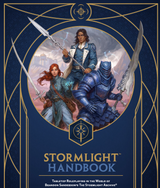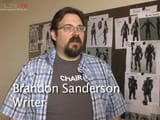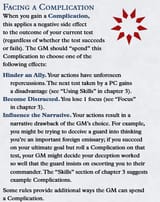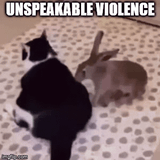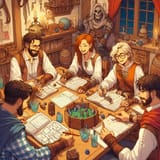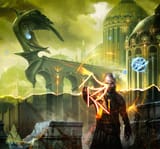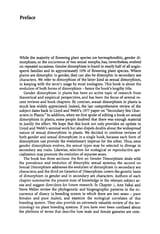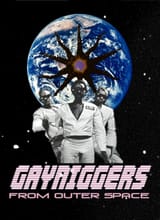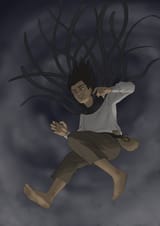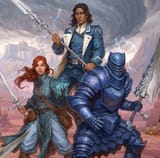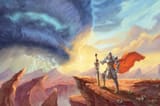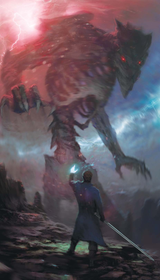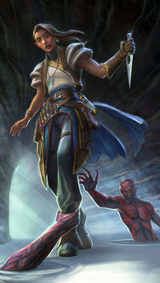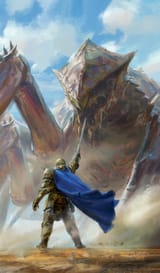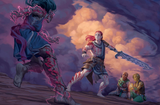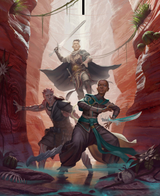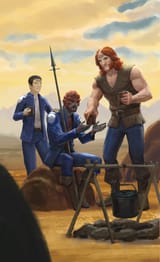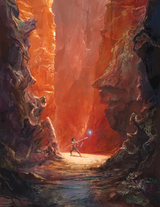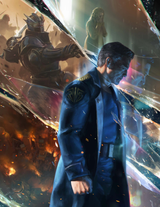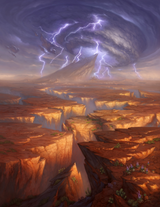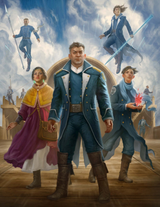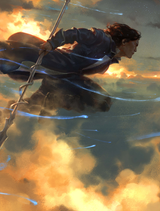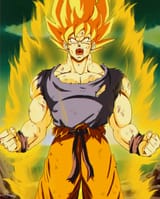>>96242198
There's the turn system, where you get more actions if you purposely go later in the initiative.
There's the changes to advantage, where you roll your d20 to hit and damage at the same time (occasionally along with the plot die) and you can reroll any of the dice rolled including the plot and damage die, and if you have multiple sources of advantage you can reroll multiple die.
There's grazing, where you spend some sort of resource to still connect on a miss, but the damage doesn't include bonuses, just the flat roll.
There's weapon and armor expertise, that either remove a negative trait from the item or give it another beneficial one.
The path system, where instead of traditional classes with abilities at certain levels, each class equivalent has a skill tree, and taking traits from multiple trees is much simpler than multiclassing.
There's goals, where you put a short term goal and on resolution you either get what you asked if the goal was to get something specific, or a choice of rewards that thematically fit the goal.
The attribute system, where each stat starts at 0 making bonuses to rolls simple, and hard stat caps so you don't get a 9 strength munchkin at level 1, with the skill system similarly having a cap based on level that's broken down into tiers.
These tiers make building combats easier since you just compare tiers.
There's more than that, but that's immediately what comes to mind when thinking about the system.
